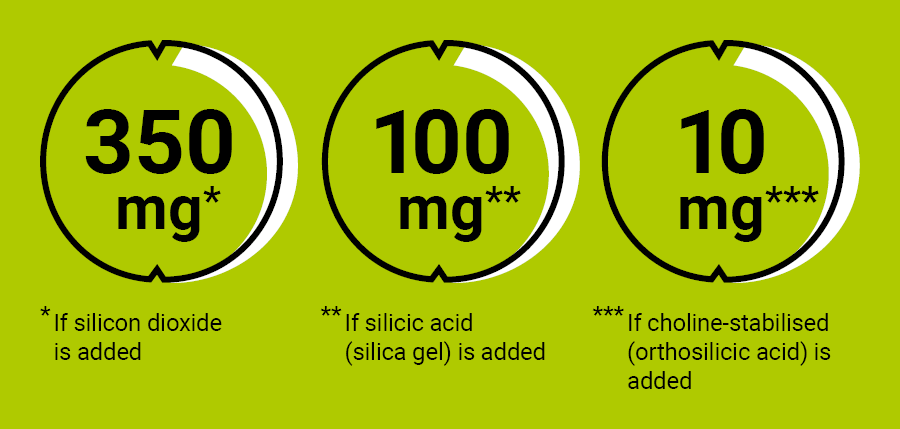You are here:
Silicon
Silicon has been classified by the European Food Safety Authority (EFSA) as a non-essential nutrient - the trace element therefore does not have to be ingested with food. A specific biochemical function of silicon in humans or animals has not yet been identified. Silicon deficiency symptoms in humans are also not known.
When following a balanced diet, silicon is regularly supplied to the body, because it is contained in most foods of plant and animal origin.
According to EFSA, there is no evidence that the amounts of silicon naturally present in food and drinking water and ingested through the diet causes any impairment to health. Various silicon compounds (silicon dioxide and silicates) are used as additives for technological purposes (including as release agents, fillers or defoamers) in the food industry, which contributes to an increase in silicon levels in food. Reliable data for resulting silicon intakes are not available to the German Federal Institute for Risk Assessment (BfR).
Proposed maximum level for the addition of silicon to food supplements (per daily dose of an individual product):
 |
A number of silicon compounds have been assessed by EFSA either for addition to food supplements or as technological additives and intakes of 350 milligrams (mg) of silicon in the form of silicon dioxide, 100 mg of silicon in the form of silicic acid (silica gel) and 10 mg each of silicon in the form of monomethylsilantriol and choline-stabilised orthosilicic acid were considered to pose no health risk. The BfR recommends that the assessments prepared by EFSA are used as a guideline when setting maximum levels for food supplements.
7/11/2023
Opinion
(1)| Date | Title | Size |
|---|---|---|
|
15.03.2021 BfR Opinion No. 009/2021
|
Updated recommended maximum levels for the addition of vitamins and minerals to food supplements and conventional foods |
478.3 KB
|

